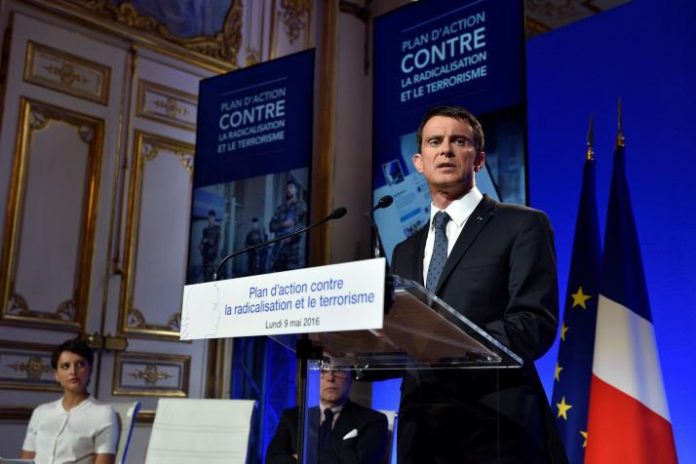
PARIS — By the end of 2017, each major region in France will feature an “anti-jihadist rehabilitation center,” French Prime Minister Manuel Valls announced Monday afternoon.
Specific details of the plan remain unclear, but the general emphasis of the French government’s so-called Action Plan Against Radicalization and Terrorism is to strengthen the ability of local authorities to catch young people before they become radicalized.
“Each epoch has its challenges,” Valls wrote on Twitter. “The fight against jihadism is the great challenge of our generation.”
This is especially true in France: 2015 began with the attacks on the office of satirical magazine Charlie Hebdo and a kosher supermarket outside Paris that killed 12; it ended with the Nov. 13 attacks on a stadium, a concert hall, and a number of cafes across the French capital that killed 130.
Valls’ announcement is an indication that the French government identifies these instances as evidence of an internal, structural problem.
Both of those attacks last year were perpetrated by young men under age 35 who were either French or Francophone European Union citizens.
Similarly, the Brussels attacks in March – which killed 32 in an assault on the city’s international airport and a subway station near the headquarters of the European Union – were carried out by the same cell of militants who orchestrated the November attacks.
That cell was technically based in Brussels but had deep ties to France and its culture. The Islamic State claimed responsibility for each attack.
As William McCants and Christopher Meserole, two fellows at the Brookings Institution, concluded in a study released after the Brussels attacks, the single greatest predictor of foreign-fighter radicalization was a country’s connection to French political culture – not its wealth or education levels.
“Instead, the top predictor was whether a country was Francophone,” the two wrote, “that is, whether it currently lists (or previously listed) French as a national language.”
In the study, the French language is seen as a stand-in for French political culture, a sensibility “more aggressive” on the question of state secularism, which many Muslims find alienating.
Besides bolstering efforts to stop French youths from affiliating with militant groups, Valls announced Monday that the government will also bolster its security apparatus. Specifically, it will create about 8,500 jobs for more police officers, customs officials and prison guards.
The French government is likely to spend about 40 million euros on these initiatives by 2018. The newspaper Le Monde reported that the first of the rehabilitation centers could be open as soon as this summer.
(c) 2016, The Washington Post · James McAuley

